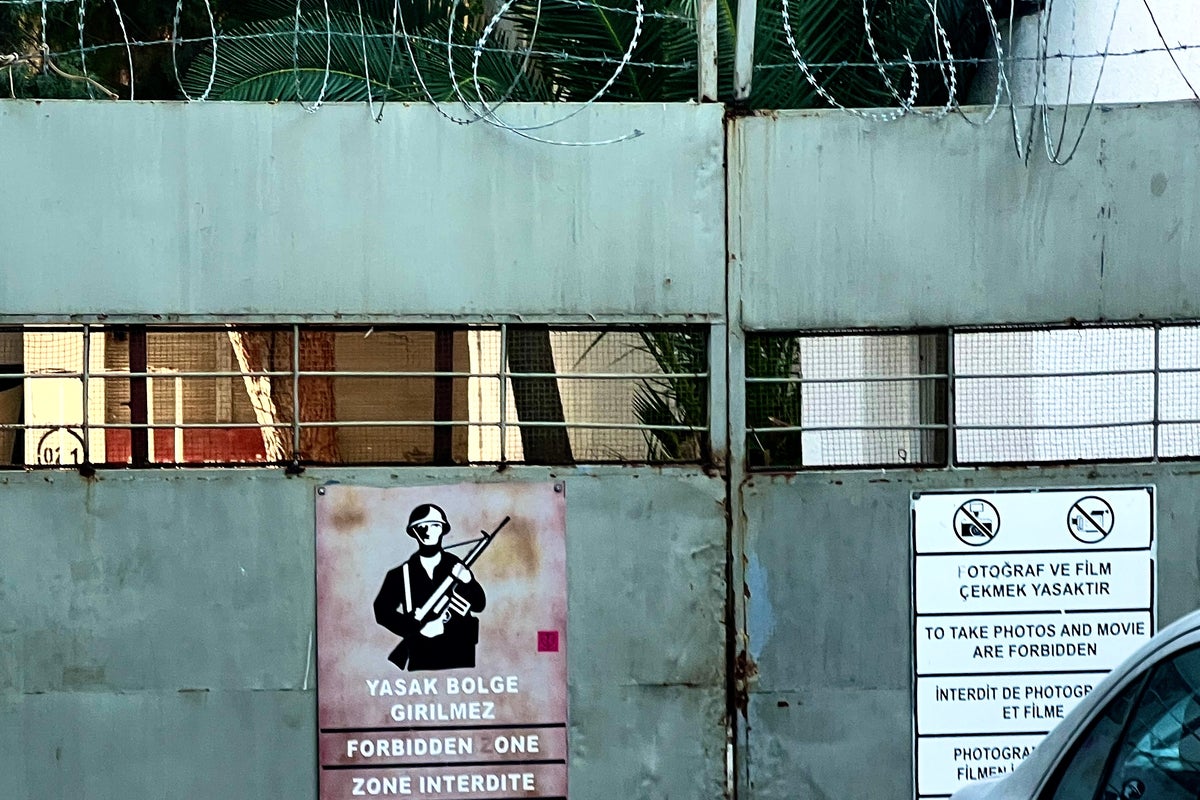
“Do you need a miracle?”
That question is posed in giant letters on the wall of the House of Glory Church in central Nicosia, capital of Cyprus. The spiritual enquiries continue: “Do you need a breakthrough in your life?”
The people of this beautiful Mediterranean island certainly do. For over half a century, Cyprus has been divided. Long after the Berlin Wall fell and the Iron Curtain rusted away, the “green line” still separates the official Republic of Cyprus in the south from the self-styled Turkish Republic of Northern Cyprus (TRNC).
The capital has a scar right through its heart, patrolled by UN peacekeepers and scrawny cats. The House of Glory is on the Greek side, only a block away from the Cypriot version of Checkpoint Charlie: a frontier in the middle of a European capital.
The TRNC, populated by Turkish Cypriots and settlers from Turkey, occupies about one-third of the island – including major resorts and important archaeological sites. The frontier between the two is far from porous.
The United Nations buffer zone, replete with watchtowers and barbed wire, keeps the two sides apart – as does an apparent lack of appetite for a political settlement on the part of the north. For the past seven years, no meaningful talks have taken place about a solution that would work for both Greek and Turkish communities.
On the edge of the buffer zone, a faded banner urges passers-by: “Remember Cyprus. A map of the island shows the illegally occupied territory dripping with blood. Since the Turkish invasion in 1974, two generations have grown up with the grief of loss and separation.
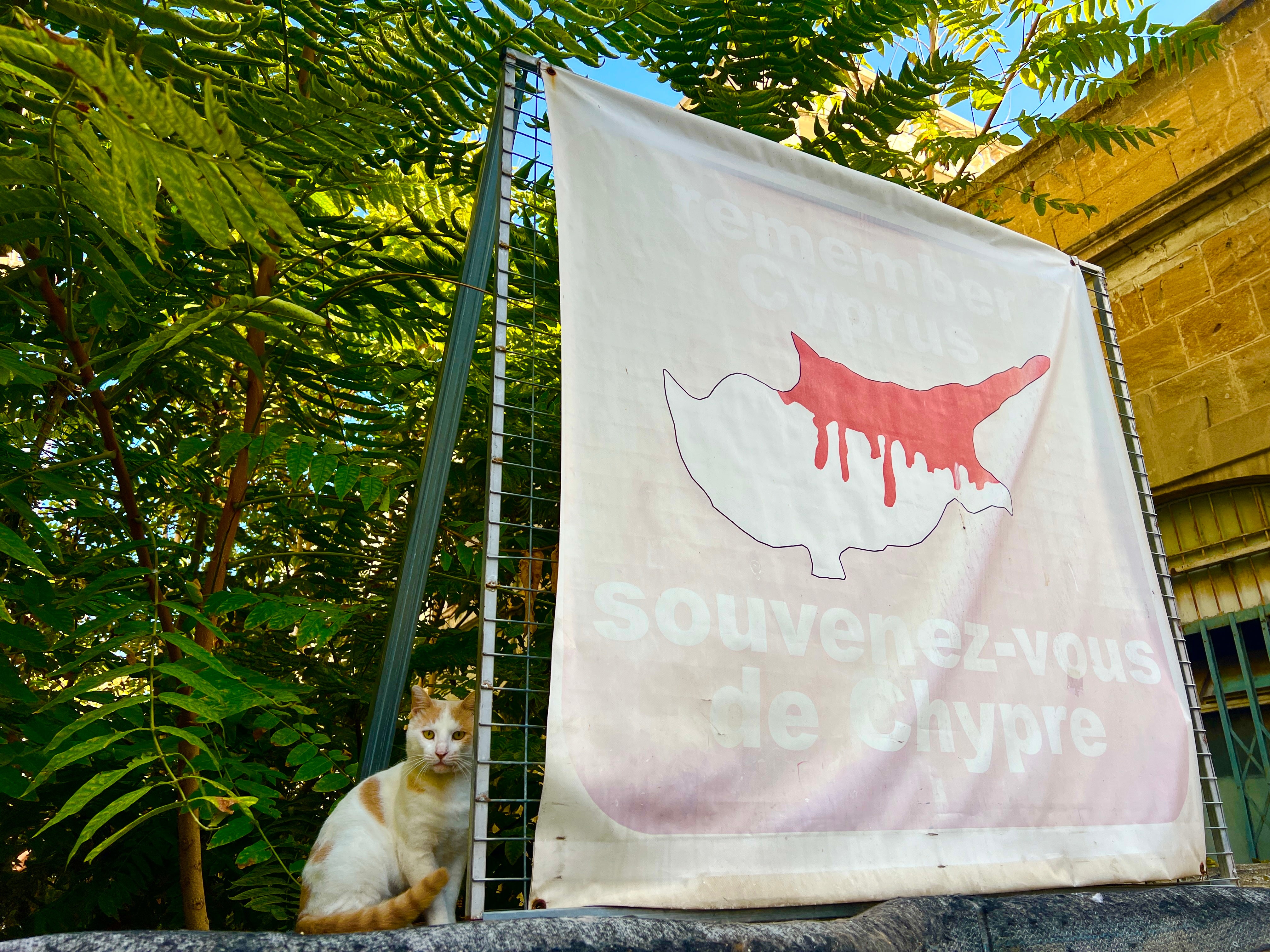
This week, though, something dramatic happened: a pro-unification moderate was elected president of the TRNC. Tufan Erhurman won a landslide on the promise of negotiating a united federation. He easily defeated the incumbent, Ersin Tatar – who is aligned with the right-wing nationalist Erdogan regime in Turkey.
“It’s good news, so let’s see,” says a woman working in the cultural sector in Larnaca – now the main gateway to Cyprus. (Like several of the people I spoke to, she prefers to remain anonymous.) “It needs cooperation from both sides.”
Unfortunately, a third party – the Turkish government – has an unhealthy interest in the island.
Some in the government in Ankara want “their” illegally occupied portion of the island to be annexed by Turkey. Realistically they would settle for a two-state solution. While that may be appropriate in the Israel-Palestine context, it would be entirely unacceptable to the government of Cyprus and the European Union. Only one country recognises the TRNC: no surprise, Turkey.
Unification of Europe’s last divided nation feels like the humanitarian challenge the rest of the continent has forgotten. Allowing families to start to repair the trauma of partition is desperately needed.
Removing the wound would be transformative for the travel industry, too. Cyprus is understandably popular with package holidaymakers: they touch down at Larnaca and Paphos airports and are whisked to sandy beaches and warm sunshine along the island’s south coast. In just two hours between 8pm and 10pm on Wednesday evening, 11 holiday flights from airports across the UK landed in Larnaca.
Unification would allow hotels and beaches frozen in the buffer zone to reopen. The appeal of the island to a wider spectrum of travellers would be much enhanced.
Adventure companies are likely to move in, opening up the relatively unvisited interior of the north for hiking and cycling. Cultural tours could exploring the vast archaeological wealth on both sides of the current border much more easily. Backpackers would be able legally to take the ferry from southern Turkey to the ancient port of Kyrenia and explore the whole island without being regarded as having used an illegal port of entry.
As Berlin has shown since reunification, Nicosia could become a beacon city without barbed wire and hostility. The capital's airport might once again return to its rightful place as a key hub for the eastern Mediterranean, offering connections between western Europe and the Middle East.
The creation of a federated state where the rights of both Greek and Turkish Cypriots are respected would have a clear dividend for both sides. But realpolitik is a different matter.
The Ledra Palace frontier is one of a handful of crossing points along the green line. It is named for the hotel that has not welcomed a proper guest – as opposed to housing the UN – for five decades. You pass it under the watchful eye of peacekeeping troops on the long and unnerving walk through no man’s land.
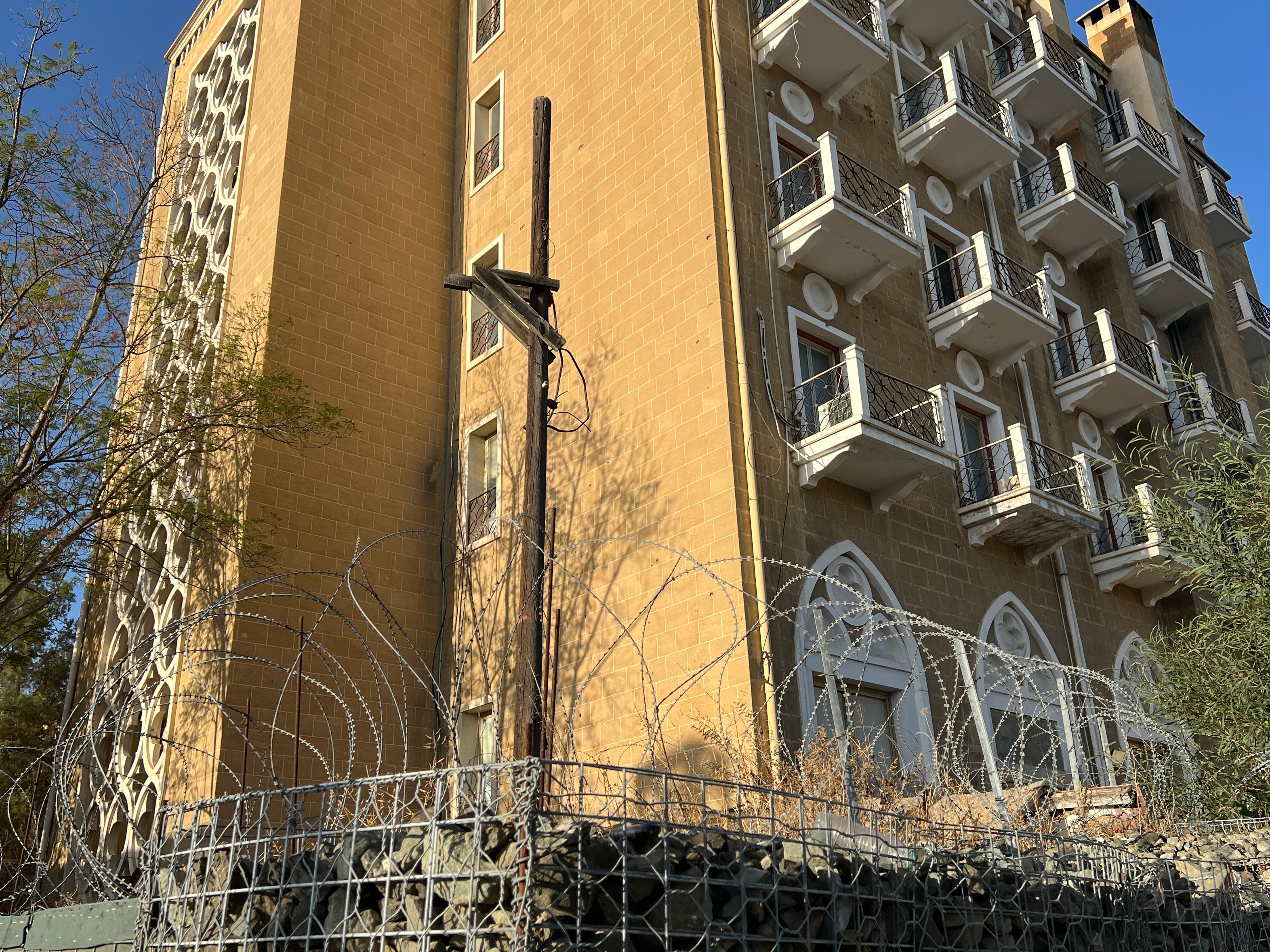
As I check out of the official republic, I ask the frontier official about the prospects for change. He shakes his head. “Turkey is in charge.” Gesturing to his counterparts a few hundred yards away, he adds: “They do as they are told.”
While one side of the frontier is a fully paid-up member of the European Union and the other is an illegal breakaway republic, life in the north is a mirror image. As the autumn sunshine dapples through the trees, groups of men perch on stools outside cafes: sipping the same thick, dark coffee, chatting and smoking while showing no huge urgency to get to work.
“It's really beautiful this side as well,” says Adel, who is actually working – in the first sweetshop that visitors encounter after passing the Greek and Turkish red tape at the other Nicosia checkpoint, Ledra Street. As I approach, he is slicing baklava for a stream of tourists expected later in the day.
But the other side of the border is far more prosperous. “We want the whole island to be one Cyprus because the Greek side is better.” Adel estimates unification will take five years.
The phrase he uses – “united freedom” – echoes through the occupied north. Close by, the Hoi Polloi pub has a poster calling for a “United Federal Cyprus”.
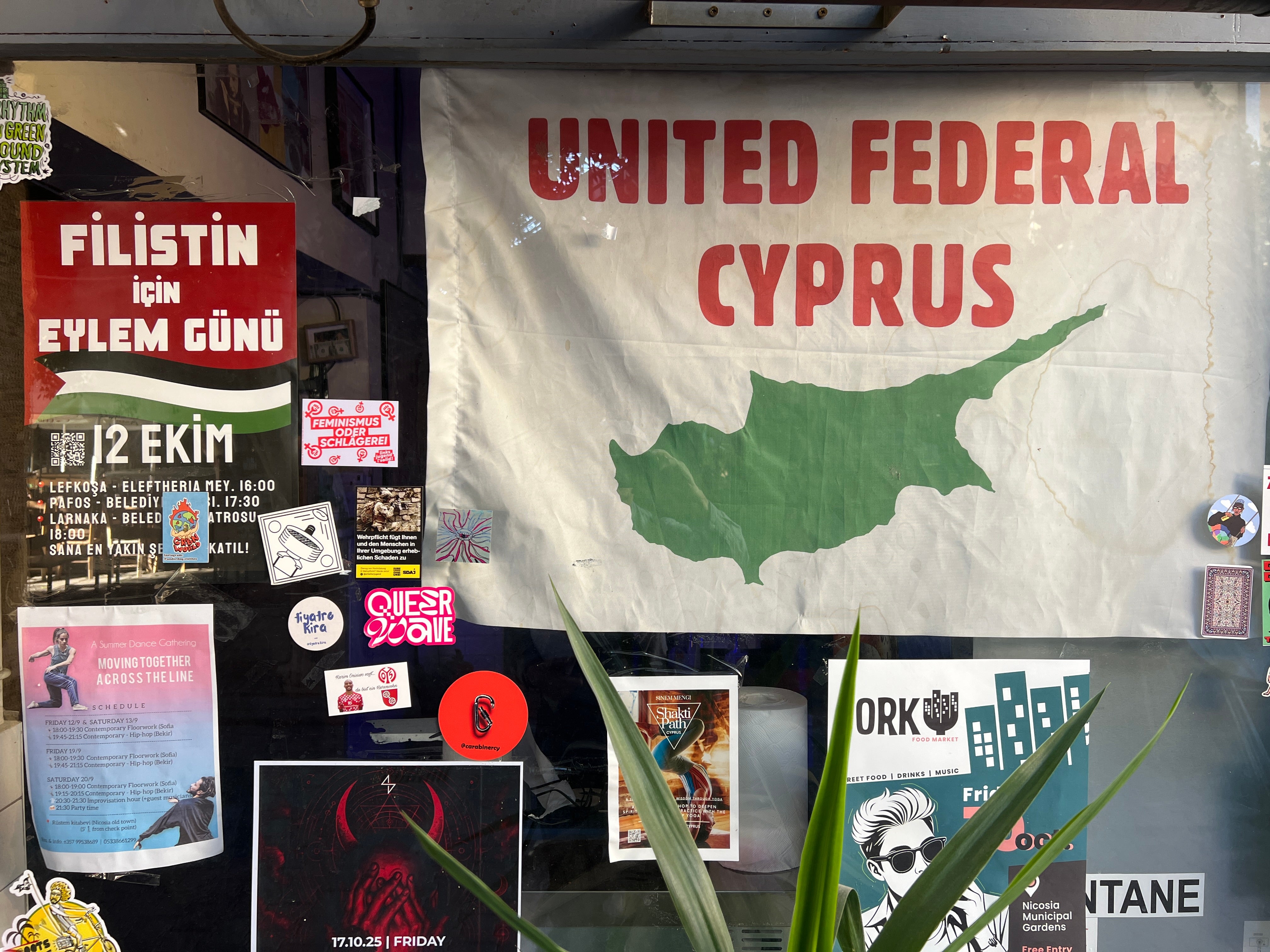
Everyone I speak to believes that any settlement negotiated by the president-elect must be signed off by Ankara. The obstacles are huge. What happens to the properties that were seized after partition? What awaits the people who have moved from Turkey to the islands over the decades? Red lines demanded by the republic might scupper any bid to erase the green line.
A tourism professional I speak to remains despondent. “Presidents, prime ministers,” she laments. “In the beginning they felt they could make a difference, but at the end, they couldn’t. That's why we're 51 years in this situation.”
Later, talking to the cultural worker in Larnaca. I mention the 2030 target I heard about in the north from Adel.
“That would be lovely, but I’m not that optimistic,” she sighs. “I think we’re a bit stubborn.”
Perhaps the House of Glory Church beside the buffer zone in Nicosia could oblige with that miracle.
Meanwhile, I remain heartened by the fluorescent green T-shirt worn by a local on the north side of the frontier emblazoned with the message: “Better than yesterday, but not as good as tomorrow.”
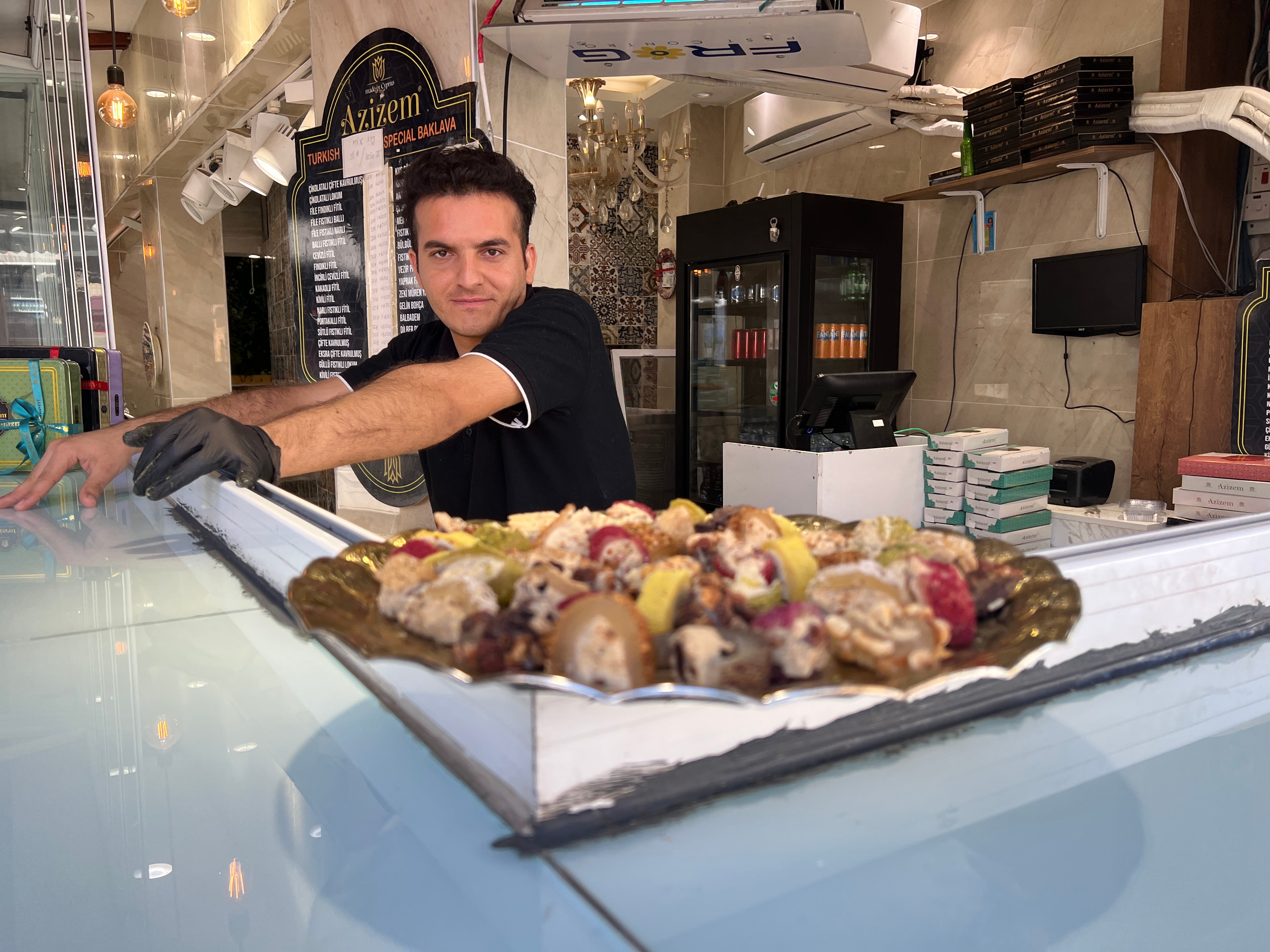
Travel essentials
Getting there
Larnaca and Paphos are served by dozens of flights from the UK, including on British Airways, easyJet, Jet2, Tui and Wizz Air.
Ercan airport in the TRNC is accessible only from airports in Turkey and is regarded as an illegal port of entry – as is the sea crossing from Turkey to Kyrenia. The Foreign Office warns: “You could be fined for illegal entry; refused entry to or exit from the Republic of Cyprus; prevented from crossing back into the north of Cyprus.” None of these is a good outcome.
Staying there
I stayed in the excellent ResArt Hotel in Nicosia, €70 (£60) single.
Getting around
The Republic has an affordable and reliable network of buses. In the TRNC, the main form of public transport is the dolmus (shared minibus). They do not usually run to timetables.
Red tape
Cyprus is in the EU but outside the Schengen area. As a result, stays on the island do not contribute to the “90/180 day” limit. Nor is the entry-exit system in operation.
Officials controlling the crossing points to the south enforce strict rules on goods, including a limit of one litre of spirits and 40 cigarettes per person.
Frantic search fails after passenger falls overboard on Norwegian Cruise ship
Tourists could be charged £13 a day to visit Balearic Islands
Rail line to reopen in Oxford as part of ‘Europe’s Silicon Valley’ project
Smuggler balloons shut large airport in Europe
TfL says to ‘avoid’ entire Northern line on fourth day of chaos
Passenger jet forced to make emergency landing after reporting mid-air fuel leak







